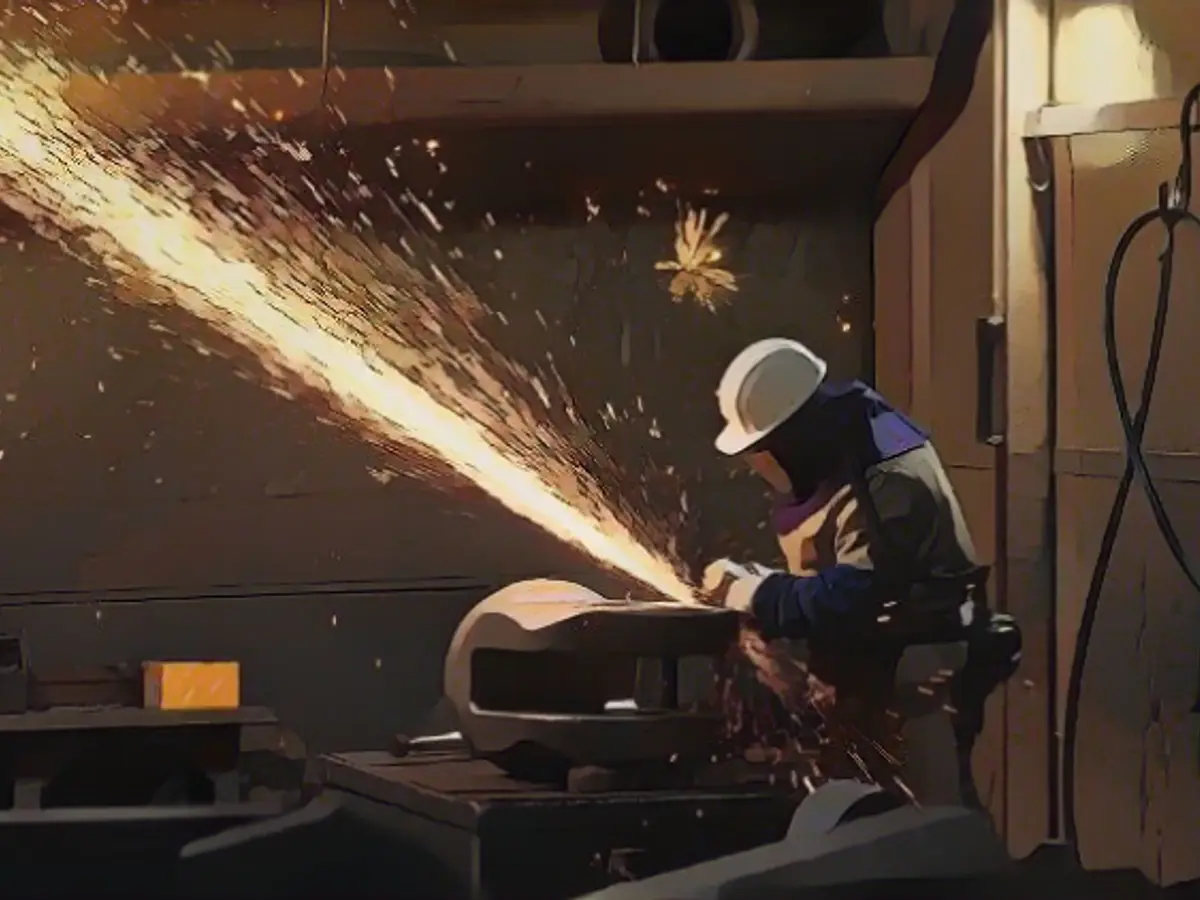Industry fails to gain momentum - recession more likely
High energy prices and a weak global economy are keeping a stranglehold on German industrial companies. In October, production fell for the fifth time in a row. The last time this happened was during the financial crisis. Economists do not expect a quick turnaround.
German industry is in its longest negative streak in a decade and a half: In October, German companies cut their production for the fifth month in a row. This brings a recession closer. Industry, construction and energy suppliers together produced 0.4 percent less than in the previous month, according to the Federal Statistical Office. By contrast, economists had expected an increase of 0.2 percent, following a fall of 1.3 percent in September. The last time there were five consecutive declines was in 2008, the year of the financial crisis.
As a result, production has fallen to its lowest level since the pandemic, said Jupp Zenzen, economic expert at the German Chamber of Industry and Commerce (DIHK). "It's not just the energy-intensive industry that is seeing declines, the construction sector is also being held back by high interest rates and the shortage of skilled workers."
Europe's largest economy is therefore threatened by a new recession. "With the renewed decline, the probability has increased that gross domestic product will now also shrink in the final quarter of the year," said Sebastian Dullien, Scientific Director of the Institute for Macroeconomics and Business Cycle Research (IMK). "According to the common technical definition of a recession as two consecutive quarters, Germany would therefore be in recession again." The economy had already shrunk in the summer, albeit by only 0.1 percent.
"Energy costs are a heavy burden"
Bridging days and vacations are likely to have played a certain role in October, as the Federal Ministry of Economics emphasized. "But even without these special effects, the economic situation is weak." Economists do not expect a rapid turnaround. "Industrial production is likely to continue to fall in the coming months," said Commerzbank chief economist Jörg Krämer. "Companies will have to react to the recent slump in incoming orders after they have processed the orders that were left lying around during coronavirus." Added to this is the uncertainty caused by the budget crisis - which is not conducive in this context.
The export-dependent industry alone produced 0.5% less in October than in the previous month. This is largely due to mechanical engineering: Production here slumped by 6.3 percent. In contrast, the automotive industry reported growth of 0.7 percent. The export-dependent industry has recently lost orders: From August to October, new business was 4.6 percent lower than in the previous three months.
"The rise in energy costs in the wake of the Russian war of aggression against Ukraine is a heavy burden for Germany," said Thomas Gitzel, Chief Economist at VP Bank. "Not only private households are being burdened, but also industry in particular."
Read also:
- Why there is still no EU funding for green Saar steel
- 3 billion Saar Fund is unconstitutional
- Politicians at a loss after shock news
- Court of Auditors criticizes the state government's debt plan
Despite the Federal Ministry of Economics attributing some role to bridging days and vacations in October's production decline, the overall economic situation remains weak. Economists do not anticipate a swift recovery, with industrial production likely to continue decreasing in the forthcoming months. This negative trend in production, combined with increased energy costs due to the Russian war of aggression against Ukraine, poses a significant challenge to Germany's industry, potentially exacerbating the economic situation and increasing the likelihood of a new recession. The DIHK, an influential organization in German industry, echoes this concern, highlighting the impact of high energy prices and labor market factors on the industry's struggles.
Source: www.ntv.de








